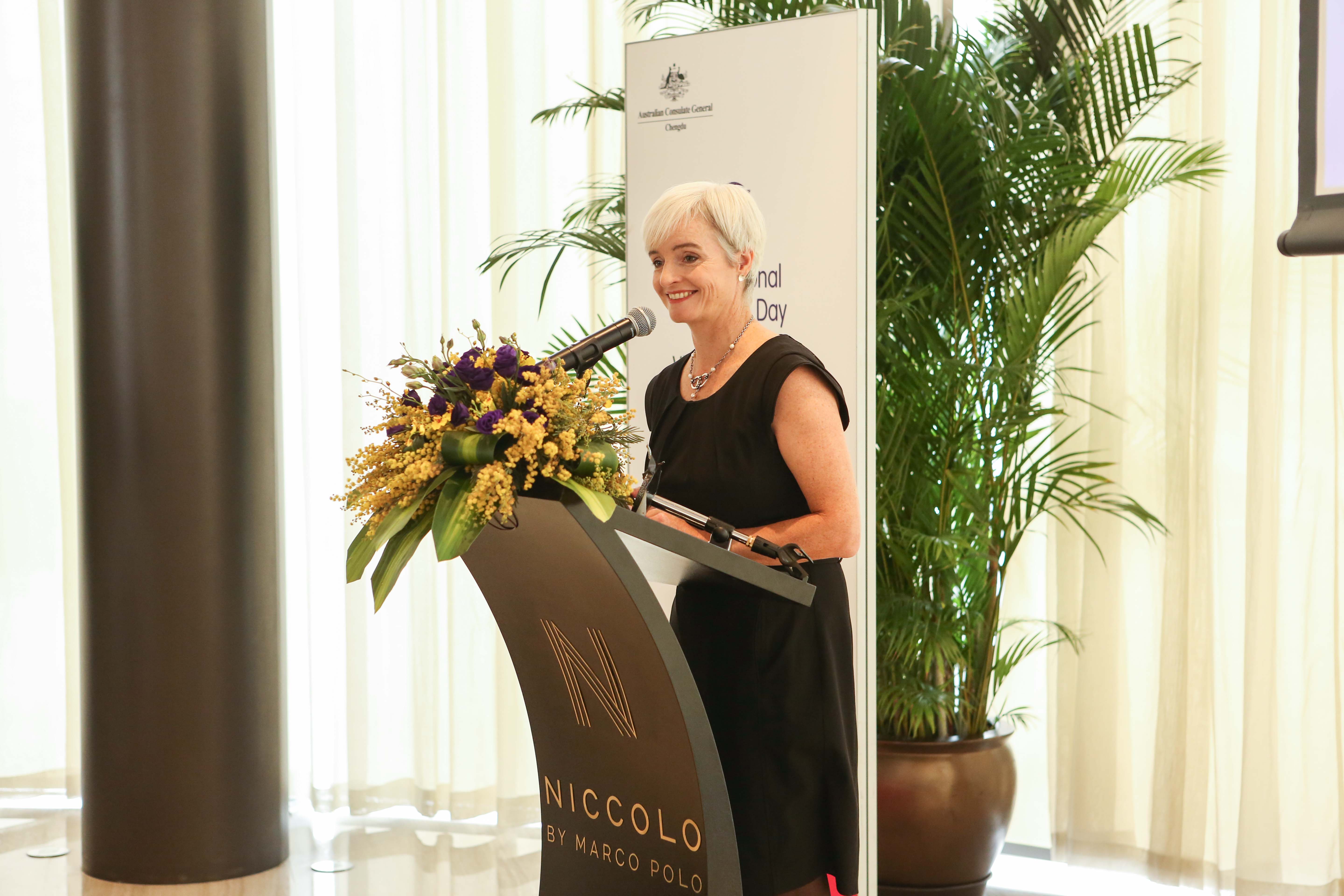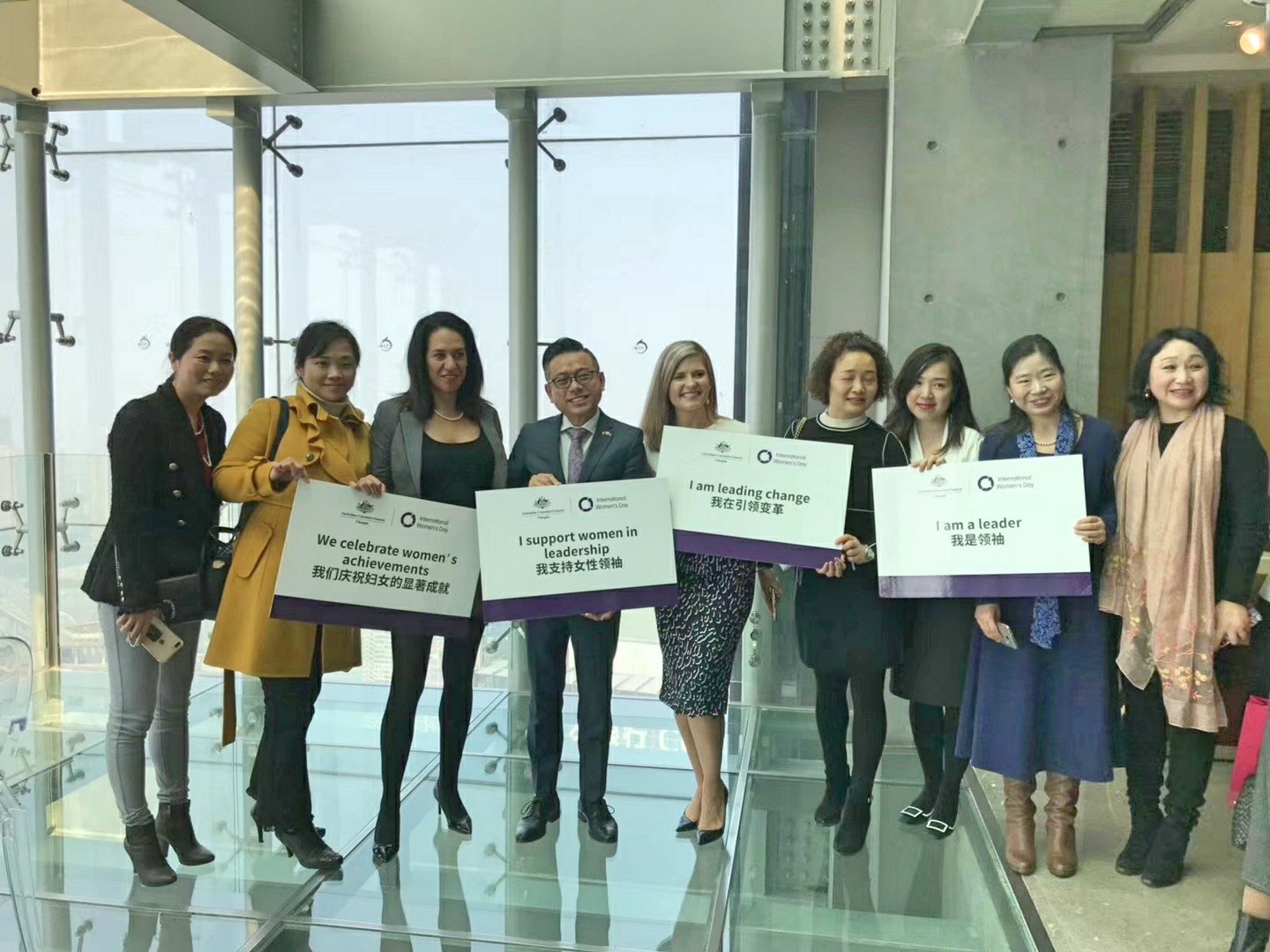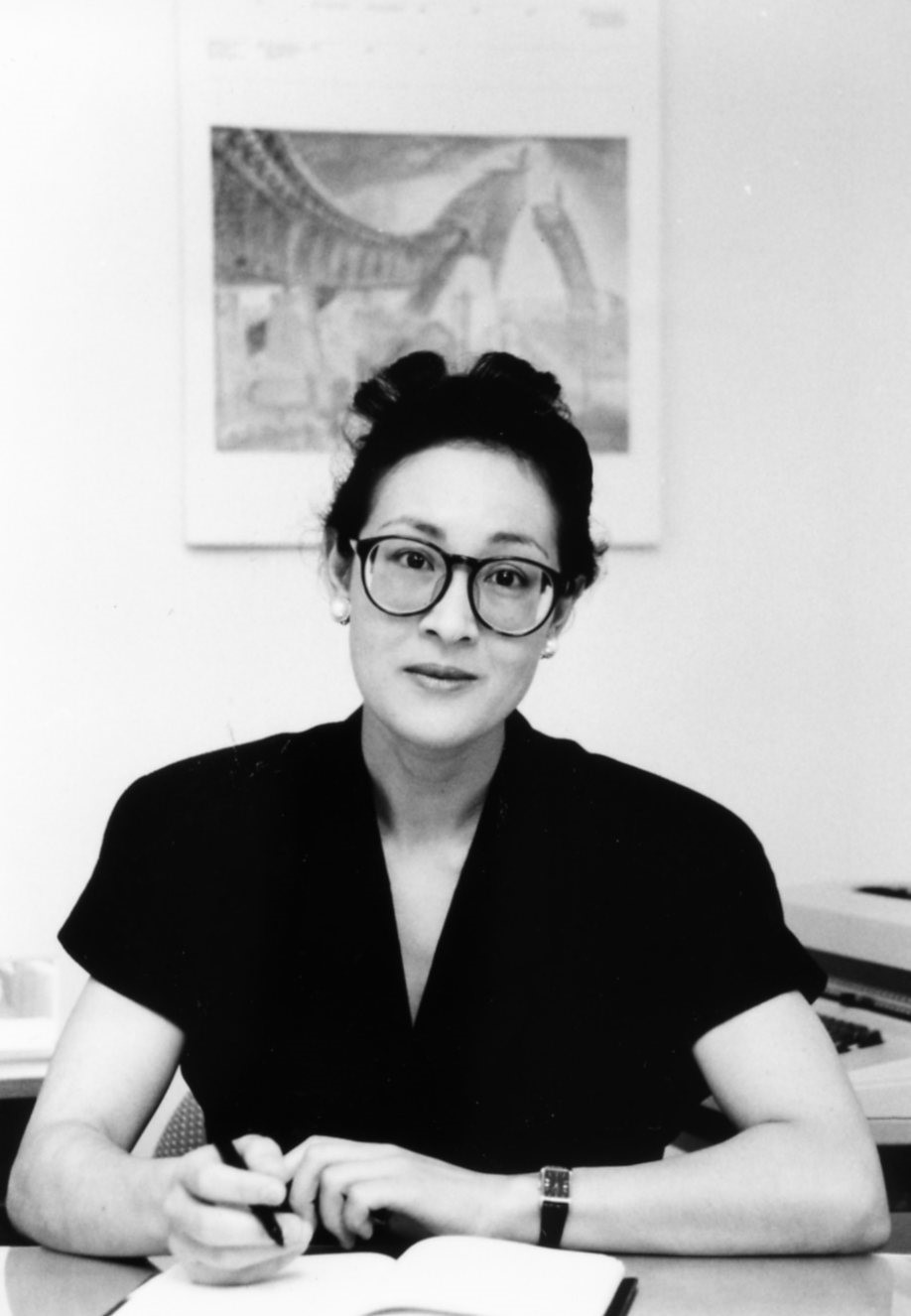International Women’s Day in southwest China
29 March 2019
One of my favourite days on our Consulate-General’s calendar is International Women’s Day. It is a privilege to lend our profile and resources to support women’s empowerment and gender equality. For me, celebrating the achievements of women is an inspiring and uplifting experience. I am constantly struck by the extraordinary accomplishments of women in southwest China. Many run businesses and lead government agencies. The women I meet in the course of my work are highly capable, optimistic, and generous.

Emma Johnston gives her 2017 International Women’s Day address in Chengdu. Credit: DFAT
The key event we organise annually is a luncheon for about 80 guests, featuring a female speaker from Australia. Over the past three years at our events in Chengdu and Chongqing, we’ve had Professor Emma Johnston AO, Dean of Science at the University of New South Wales; Professor Amalia Di Iorio, Associate Pro-Vice Chancellor, La Trobe University; and Ms Holly Ransom, CEO of Emergent and Board Director at the Port Adelaide Football Club. We also organise panel and networking events involving Australian alumni so they can meet these speakers.
Importantly, we make sure we don’t just work on women’s empowerment for only one day of the year. Our Consulate-General is committed to gender equality as an integral part of our work practices, mindset and culture. This includes ensuring that in all areas, the people we interact with – interlocutors, partners, contractors, panelists, sponsors, invitees, etc – have female representation. Not only does it make sense in terms of obtaining the best possible outcomes, it also reflects our values as Australians. Among other things, I host quarterly lunches with local women leaders, support mentorship programs and have taken on the role of a male champion of change. Hence, this IWD year’s theme of more powerful together has a special resonance for me.

Consul-General Lim (centre) supporting women’s empowerment and gender equality in Chongqing. Credit: DFAT
This year, I was honoured to launch a photo competition to capture the achievements of women. The Australia-China “She Inspires Me” Photo Competition aims to share the stories of the inspiring women in our community who are making a difference. The competition runs from 8 March to 15 April 2019 and is free to enter. Winners from both Australia and China will have the opportunity to have their photos exhibited, with one grand prize winner from each country to win flights between Melbourne and Chengdu. More details are available here.
Share photographs that capture your story of the inspiring achievements of women in the Australia-China “She Inspires Me” photo competition. Credit: Fotor
After hosting and participating in a number of women’s events in southwest China, I have come to realise the tremendous value of our women’s empowerment activities. We bring to southwest China the debates in Australia regarding women in leadership, women in STEM, gender pay gaps, quotas for women, female representation in politics, discrimination, as well as bullying and violence against women and girls.
Public discussions in southwest China, however, have a different emphasis. For instance, there is almost no discussion about gender pay gaps or the low representation of women in politics. Discussions instead focus on balancing work and personal life; juggling the roles of a professional, mother, wife and daughter; and addressing patriarchal attitudes in the workplace.
Emergent CEO Holly Ransom shares views on how to foster gender equality in the workplace. Credit: DFAT
In my experience, the public celebration of IWD in China is more about appreciating women’s contributions to society. This is manifested through husbands and boyfriends buying flowers for women on that day, male colleagues showing appreciation for their female colleagues, and women getting a half day off. At the same time, there are also many local events that would be familiar to us, such as seminars on women in business, literature and film, often organised by women for women. There are also discussions about the government’s second-child policy, and the pressure on college-educated professional women to marry and have children quickly, to address the country’s falling birth rates, an ageing population and shrinking workforce.
Kunming industrial painters Zi Chunxiang and Shaoyin are the subjects of this “She Inspires Me” competition entry. Credit: Fotor
It would be fair to say that women in China today are affecting and being affected by tremendous social change. Women’s attitudes towards marriage and family life are evolving as China’s middle class grows and society becomes more globalised. Compared to any point in history, Chinese women are now more confident in themselves, more economically independent and more assertive in living their own lives.
In line with their growing economic independence, more Chinese women are delaying or even forgoing marriage, leading to the marriage rate in 2018 plummeting to its lowest ever level. Now, when women are in unhappy marriages, divorce is a real option, unlike in the past. Divorce rates are therefore climbing: according to the latest central government report, the national divorce rate was 38 per cent in 2018, with more than half of marriages in Chongqing ending in divorce (53 per cent), ranking fourth nationwide.

“Glenda Gauci inspires me because she was the first Asian Australian woman appointed as an ambassador of Australia. Smart, energetic and kind, Glenda was a role model and a mentor. She died of mesothelioma, a rare form of cancer caused by exposure to asbestos fibres, at just 47 years old.” Credit: DFAT
In this context, by bringing women from Australia and China together, our Consulate-General helps to build understanding and exchange ideas on building a more equitable world. So no matter the different emphases Australia and China have on the issue of gender equality, it is clear that if women, girls, men and boys work together, we can indeed become more powerful together.
